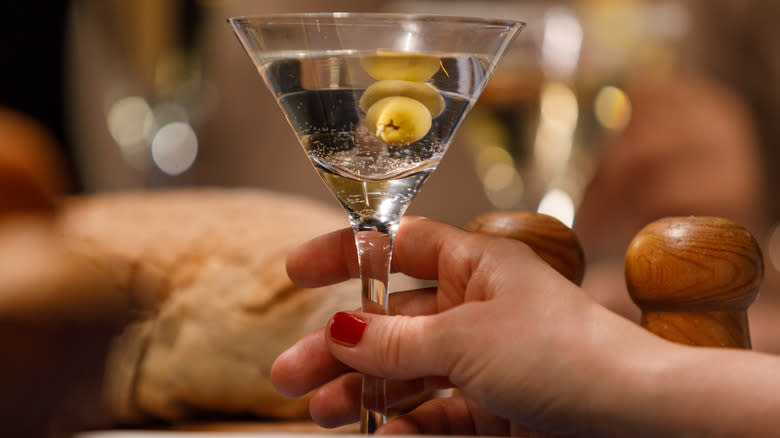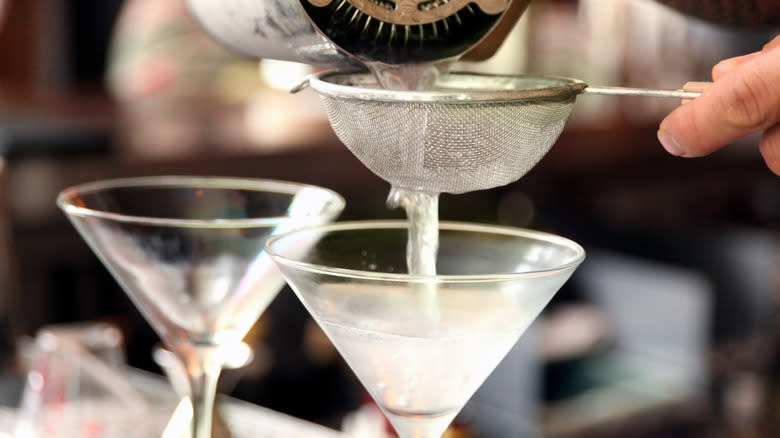Why You Should Consider Choosing Gin Over Vodka In Your Martini

Here at Tasting Table, we're not into those elitist arguments about what makes a real or true version of a drink. We're recipe-keepers, not gatekeepers ... but it's a little different when it comes to the classic martini.
One of the (many) drinks about which bartenders tend to have strong opinions is the martini, and whether gin or vodka makes the proper version. The vodka martini's fall from grace happened during the early-to-mid 2000s, probably as a reaction to the merciless onslaught of vodka-based drinks that largely comprised the American bar scene. Gin martinis were a nostalgic return to the past, a sophisticated -- if slightly pretentious -- nod to the roots of mixology (and the class of bartenders who willingly volunteered the word mixologist to describe themselves).
The gin martini is often considered a martini variation, with the classic martini combining vodka, dry vermouth, orange bitters, and a lemon twist or olive, stirred. As any aficionado would be eager to tell you, gin is much more than just flavored vodka -- but, on a fundamental level, that's kind of what it is. Gin is made from distilled grain mash flavored with botanicals like juniper berry, almond, angelica, anise, cassia, coriander, fennel, or citrus peel, among others. Vodka is made from either grain or potatoes, sans-infusions. As such, using gin in your martini imparts the nuanced yet powerful flavors of the spirit -- a welcome, dimensional addition to the otherwise plain profile of the understated cocktail.
Read more: 23 Cocktails To Try If You Like Drinking Gin
Bring A Botanical Boost

Different gins are often described by their idiosyncratic flavor notes (think floral, herbaceous, piney). Vodka, on the other hand, is typically described by what it is not -- odorless, colorless, flavorless -- surely giving it the sex appeal of white bread. Paired with this neutral spirit, the vermouth in a martini shines as much as it does the bulk of the heavy lifting. By contrast, pairing gin and vermouth creates a complex, layered profile with more personality. In a 2002 episode of Anthony Bourdain's "A Cook's Tour" (which came out right when the vodka craze was losing steam), Bourdain asked legendary bartender Dale DeGroff, "I like a vodka martini, is that really a martini?", to which DeGroff replied, "Gin is a martini. Vodka doesn't bring any flavor to the party. I want all the flavors of the botanicals in the gin to come together and make a great drink."
Gin also comes in a wide variety of styles, from Navy strength to London Dry, sweeter Old Tom, aromatic Genever, and fruity Plymouth -- all of which offer a different nuanced profile for your cocktail. You can further showcase your gin's flavor by selecting a complementary garnish, like a pickled cocktail onion, lemon twist, rosemary sprig, or a castelvetrano olive.
(The one exception is the dirty martini. Salty olive brine is delicious, but admittedly doesn't pair great with gin's heavy botanicals; neutral vodka is, for once, the move in this case.)
Read the original article on Tasting Table.
Solve the daily Crossword

